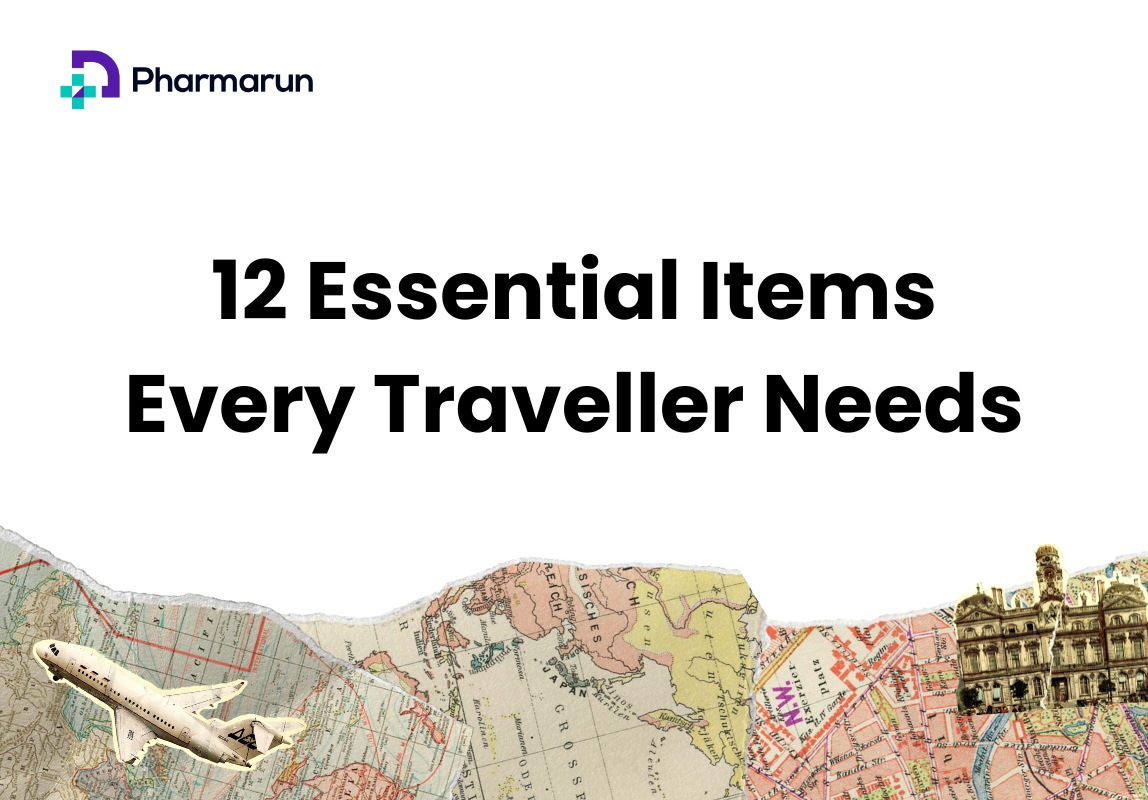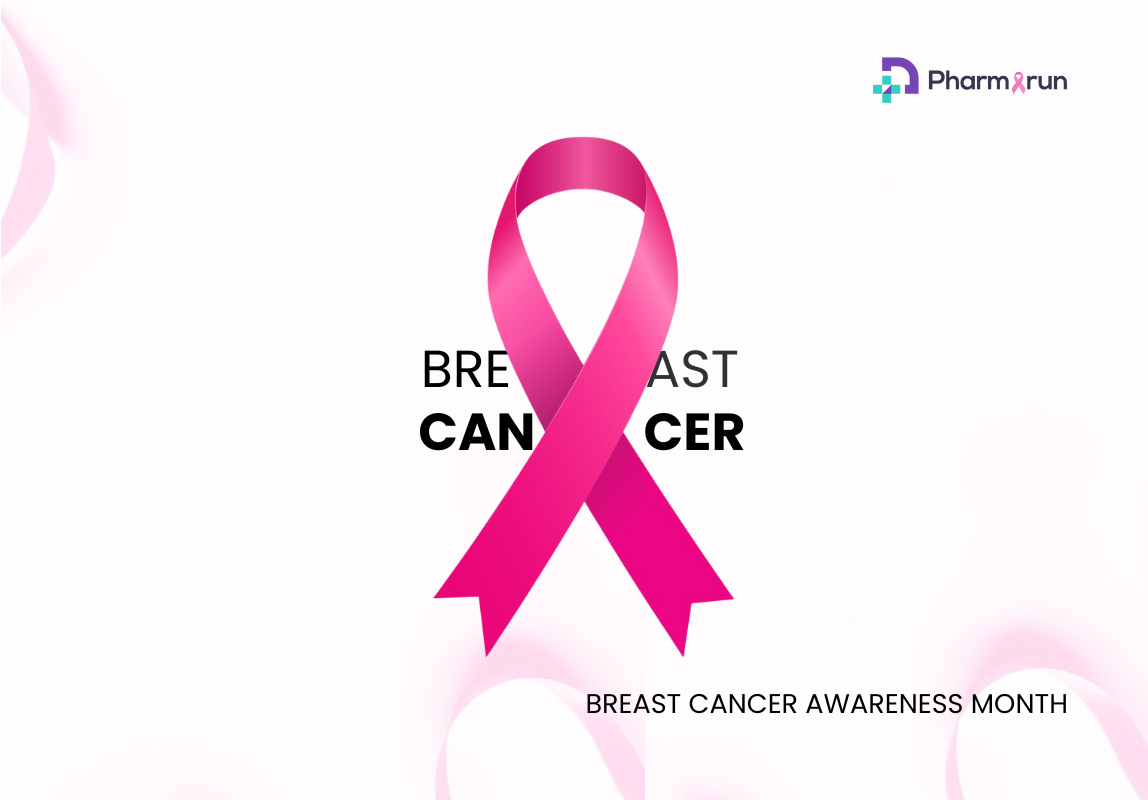What Is Hypertension? Causes, Symptoms And Treatment | Pharmarun | Online Pharmacy in Nigeria

Hypertension, often referred to as high blood pressure (HBP), is a health condition that affects many people. It occurs when the force of blood against the walls of the arteries is consistently too high. This condition can lead to severe health issues if left untreated. In this article, we'll discuss the prevalence of hypertension, its causes, symptoms and treatment.
What is Blood Pressure?
Blood pressure is a vital measure of our cardiovascular health. It is expressed as two numbers, and everyone should know what these numbers mean as it is necessary for maintaining a healthy heart. Let's explain systolic and diastolic blood pressure readings and the significance of these numbers.
1. Systolic and Diastolic Blood Pressure Readings:
When you get the blood pressure checked, you see two numbers. The first number is called systolic pressure, and the second is diastolic pressure.
- Systolic Pressure: This is the top number in the blood pressure reading and represents the force of blood against the artery walls when the heart beats or contracts. It is like the peak pressure during each heartbeat.
- Diastolic Pressure: This is the bottom number and signifies the force of blood against the artery walls when the heart is at rest between beats. It is the minimum pressure in the arteries.
For example, if the blood pressure is read as 120/80 mmHg, the systolic pressure is 120, and the diastolic pressure is 80.
A normal blood pressure reading is usually around 120/80 mmHg. Higher readings may indicate hypertension (high blood pressure), while lower readings could suggest hypotension (low blood pressure).
2. High Blood Pressure (Hypertension).
Readings consistently above 130/80 mmHg are often considered high. Hypertension can strain the heart and arteries, increasing the risk of serious health issues such as heart disease and stroke.
3. Low Blood Pressure (Hypotension).
Readings below 90/60 mmHg may indicate low blood pressure. While low blood pressure is generally not as concerning as high blood pressure, it can cause dizziness and fainting.
Blood Pressure Charts and Ranges

Causes Of Hypertension
- Genetics:
Some people may have a family history of hypertension, suggesting a genetic predisposition to the condition. If your parents or close relatives have high blood pressure, you might be at a higher risk.
- Age:
As we age, our blood vessels naturally become less flexible, contributing to an increased likelihood of hypertension. Everyone should monitor their blood pressure regularly, especially as they get older.
- Lifestyle Factors:
i. Diet:
Consuming a diet high in salt, saturated fats, and cholesterol can contribute to high blood pressure. Processed foods and excessive sodium intake can elevate blood pressure levels over time.
ii. Physical Inactivity:
Lack of regular physical activity is another significant factor. Exercise helps keep the heart and blood vessels healthy, promoting better blood flow and lower blood pressure.
iii. Stress:
Chronic stress can affect the blood pressure. When we are stressed, our bodies release hormones that can temporarily raise blood pressure. Long-term stress may contribute to the development of hypertension.
iv. Weight:
Being overweight or obese increases the risk of hypertension. Excess body weight requires the heart to work harder to pump blood, leading to higher blood pressure.
Other Causes of Hypertension:
Smoking, Excessive Alcohol Consumption and Chronic Kidney Disease can cause hypertension.
Common Symptoms and Signs of High Blood Pressure
High blood pressure, or hypertension, is a silent condition because it may not show noticeable symptoms. But here are some of the typical symptoms and signs associated with high blood pressure:
- Headaches:
Persistent headaches, especially at the back of the head, may be associated with high blood pressure.
- Dizziness or Lightheadedness:
Feeling dizzy or lightheaded, particularly when standing up, can sometimes be linked to high blood pressure.
- Blurred or Double Vision:
High blood pressure can affect the blood vessels in the eyes, leading to visual disturbances such as blurred or double vision.
- Chest Pain or Shortness of Breath:
Severe hypertension can strain the heart, thereby causing chest pain or shortness of breath. In this case, patients require immediate medical attention.
- Fatigue:
Persistent fatigue or weakness may be a symptom of high blood pressure, especially if accompanied by other symptoms.
Potential Risks and Complications of Uncontrolled Hypertension:
When blood pressure remains consistently high, it puts stress on the heart and blood vessels, increasing the risk of serious health problems. Some potential risks and complications include:
- Heart Disease:
Uncontrolled hypertension can lead to the development of heart disease. The increased pressure on the arteries can cause them to narrow, reducing blood flow to the heart. This can result in conditions like coronary artery disease, heart failure, or heart attacks.
- Stroke:
Hypertension is a leading cause of strokes. High blood pressure can damage the blood vessels in the brain, causing blood clots or ruptures that cause strokes. Strokes can have severe and lasting consequences, affecting speech, movement, and cognitive function.
- Kidney Damage:
The kidneys play a big role in regulating blood pressure. Persistent high blood pressure can damage the kidneys' blood vessels, affecting their ability to filter waste and excess fluids from the body. This can lead to chronic kidney disease or kidney failure.
- Vision Problems:
Hypertension can affect the blood vessels in the eyes, leading to damage to the retina and potentially causing vision problems or even blindness.
- Aneurysms:
Weakening of blood vessel walls due to high blood pressure can result in the formation of aneurysms. These are bulges in the blood vessels that, if they rupture, can cause life-threatening internal bleeding.

in Nigeria
Link Between Hypertension and Other Health Conditions:
- Heart Disease
Hypertension is a major risk factor for heart disease. The increased workload on the heart and the strain on the arteries can lead to various cardiovascular issues.
- Diabetes
Hypertension and diabetes often coexist. Individuals with diabetes are at an increased risk of developing hypertension, and vice versa. Both conditions must be effectively managed for better health.
- Intracranial Pressure:
Persistently high blood pressure can contribute to increased pressure within the skull, known as intracranial pressure. This can have serious neurological consequences, affecting the brain and its functions.
Hypertension Treatment and Management
a. Dietary Changes:
A heart-healthy diet can help manage hypertension. Here are some tips to consider.
- Limit the amount of salt in your diet. It helps lower blood pressure. Avoid processed foods and use herbs and spices for flavoring.
- Eat More Fruits and Vegetables: These foods are rich in potassium, which helps balance sodium levels and helps overall cardiovascular health.
- Choose Whole Grains: Whole grains provide essential nutrients and fiber, contributing to better heart health.
b. Regular Exercise:
Engage in regular physical activity to control blood pressure. Do at least 150 minutes of moderate-intensity exercise per week, such as brisk walking, cycling, or swimming.
Exercise helps promote cardiovascular fitness, strengthen the heart, and lower your blood pressure.
c. Weight Management:
Maintain a healthy weight to manage hypertension.
d. Reduce stress:
Chronic stress can contribute to high blood pressure. Activities such as deep breathing, meditation, and yoga can help manage stress levels.
Medication Options
a. Diuretics: Diuretics, or water pills, help the body eliminate excess sodium and water, reducing blood volume and pressure.
b. Beta-Blockers: These medications reduce the heart's workload by blocking the effects of certain hormones, lowering heart rate and blood pressure.
c. ACE Inhibitors: Angiotensin-converting enzyme (ACE) inhibitors relax blood vessels, making it easier for blood to flow and reduce blood pressure.
d. Calcium Channel Blockers: These medications prevent calcium from entering the heart's cells and blood vessel walls, reducing heart rate and relaxed blood vessels.
e. ARBs (Angiotensin II Receptor Blockers): ARBs block the action of angiotensin II, a hormone that narrows blood vessels, helping to lower blood pressure.
Natural Remedies for Hypertension
Some individuals use natural remedies for their hypertension management. While these may not replace prescribed medications, they can be supportive. Examples include:
- Garlic:
Some studies suggest that garlic may have a modest blood pressure-lowering effect.
- Fish Oil:
Omega-3 fatty acids found in fish oil can contribute to cardiovascular health.
- Potassium-Rich Food such as bananas and oranges, can support blood pressure regulation.
Blood Pressure by Age
Blood pressure tends to change throughout life, influenced by factors such as growth, lifestyle, and overall health. Here's a general overview:
1. Infants and Children: Blood pressure in infants and children is typically lower, gradually increasing as they grow. It's essential for healthcare professionals to monitor blood pressure in pediatric populations to identify any potential issues early on.
2. Adults: Blood pressure tends to rise with age due to changes in blood vessel elasticity and other physiological factors.
3. Elderly: Older adults may experience variations in blood pressure. While some may have elevated blood pressure, others might develop orthostatic hypotension, a condition where blood pressure drops when standing up.
Gender and Blood Pressure:
Blood pressure can vary between men and women, with some differences noted in different age groups.
- Before Menopause: Women generally have lower blood pressure than men in their younger years. However, blood pressure tends to equalize or even become slightly higher in women after menopause.
- Pregnancy: Pregnancy-induced hypertension, also known as gestational hypertension, can occur, posing risks to both the mother and the baby.
Conclusion
Given the potential lack of noticeable symptoms, monitoring your blood pressure allows you to track their blood pressure over time, identify any patterns, and take appropriate action if readings consistently fall outside the normal range.
If you or someone you know has high blood pressure, Pharmarun is here to help. We've come up with a way to assist people dealing with hypertension. We provide all the help you need, especially in managing your medications. Plus, we can deliver your recurring medications right to you monthly, no matter where you are.
Lastest bants
Stories, facts and bants on this journey to ensuring access to medication for Africa
Download Pharmarun today!
Get started with us today by using our delivery service. Also, be one of the first to experience our unique healthcare platform.





